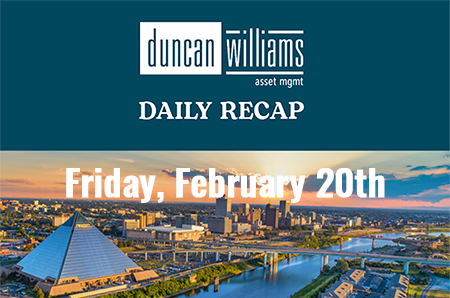
Midday Market Report: Four Major Economic and Market Stories – April 22, 2025
As of midday on Tuesday, April 22, 2025, global markets and economic observers are grappling with a pivotal development: the International Monetary Fund's (IMF) global growth downgrade. This downgrade, amid record U.S. tariffs, sets a sobering tone for the rest of the report. Other significant developments include a sharp rebound in U.S. stock markets, ongoing volatility driven by President Trump's criticism of the Federal Reserve, and rising recession risks.
1. IMF Slashes Global and U.S. Growth Forecasts as Tariffs Bite
Reporting from Washington, the International Monetary Fund today issued a stark warning about the global economy, cutting its growth forecasts for the U.S., China, and most significant economies. The IMF cited U.S. tariffs—now at century-high levels—as a primary reason for the downgrade. The Fund now expects global growth of just 2.8% in 2025, down from its 3.3% January estimate, and U.S. growth of 1.8%, nearly a whole percentage point lower than previously forecast. This significant downgrade underscores the severity of the situation. IMF chief economist Pierre-Olivier Gourinchas said the probability of a U.S. recession has climbed to 37% and emphasized the need for central bank independence as policy uncertainty and trade tensions moun.
Sources:
- Reuters: https://www.reuters.com/business/imf-cuts-growth-forecasts-most-countries-wake-century-high-us-tariffs-2025-04-22/
- CNBC: https://www.cnbc.com/2025/04/22/imf-slashes-us-growth-forecast-by-nearly-one-percentage-point.html
- Bloomberg: https://www.bloomberg.com/news/articles/2025-04-22/imf-slashes-global-growth-forecast-says-downside-risks-dominate
- The New York Times: https://www.nytimes.com/2025/04/22/us/politics/imf-world-economic-outlook.html
- PBS NewsHour: https://www.pbs.org/newshour/economy/imf-drops-global-economic-growth-forecast-amid-uncertainty-around-trumps-tariffs
2. U.S. Stock Markets Rebound After Monday's Rout
After Monday's steep sell-off, U.S. stocks staged a strong midday rebound. The Dow Jones Industrial Average surged more than 1,000 points (2.8%), the S&P 500 rose 2.84%, and the Nasdaq Composite gained 3.27%. Importantly, the rally was broad-based, with every Dow component in positive territory and nearly all S&P 500 firms advancing. This widespread recovery reassures investors, despite the fact that all three indexes remain on track for their worst monthly performance since 2022.
Sources:
- CNN: https://www.cnn.com/2025/04/22/investing/us-stock-market/index.html
- Barron's: https://www.barrons.com/livecoverage/stock-market-today-042225
- Investopedia: https://www.investopedia.com/dow-jones-today-04222025-11719529
- Reuters: https://www.reuters.com/business/us-stock-futures-rebound-after-selloff-corporate-earnings-focus-2025-04-22/
- MarketWatch: https://www.marketwatch.com/livecoverage/stock-market-today-dow-s-p-nasdaq-eye-small-rebound-tesla-earnings-due-dollar-falls-yields-rise
- Wall Street Journal: https://www.wsj.com/livecoverage/stock-market-trump-tariffs-trade-war-04-22-25
3. Trump's Attacks on Fed Chair Powell Add to Market Volatility
President Trump's repeated public criticism of Federal Reserve Chair Jerome Powell continues to unsettle financial markets. On Monday, Trump called Powell "Mr. Too Late" a "major loser" and has floated the possibility of firing the Fed chair. These attacks, combined with uncertainty over the future of U.S. trade policy, have amplified volatility and raised concerns about the central bank's independence. Market strategists say a multi-front trade war and a crisis over Fed independence are "understandably making markets anxious", highlighting the potential consequences of these actions.
Sources:
- CNBC: https://www.cnbc.com/2025/04/21/stock-market-today-live-updates.html
- Barron's: https://www.barrons.com/livecoverage/stock-market-today-042225
- USA Today: https://www.usatoday.com/story/money/markets/2025/04/22/stocks-tariffs-federal-reserve/83205235007/
- Reuters: https://www.reuters.com/business/us-stock-futures-rebound-after-selloff-corporate-earnings-focus-2025-04-22/
- Bloomberg: https://www.bloomberg.com/news/articles/2025-04-21/stock-market-today-dow-s-p-live-updates
- Fox Business: https://www.foxbusiness.com/live-news/stocks-volatile-after-trump-pressures-powell-for-rate-cuts-tesla-earnings-on-tap-live-updates
4. Recession Risks Rise as Economists Cut Forecasts
Economists and major banks are warning of increased recession risks in the U.S. Citigroup's chief economist Nathan Sheets said the probability of a U.S. recession is now between 40% and 45%, with the IMF and World Bank echoing concerns about downside risks from tariffs and trade disruptions. The IMF's World Economic Outlook and the World Bank's spring meetings both highlighted that the unpredictability of tariffs makes it harder to forecast economic growth and that global trade volume could contract further if tensions persist.
Sources:
- Reuters: https://www.reuters.com/business/imf-cuts-growth-forecasts-most-countries-wake-century-high-us-tariffs-2025-04-22/
- CNBC: https://www.cnbc.com/2025/04/22/imf-slashes-us-growth-forecast-by-nearly-one-percentage-point.html
- Bloomberg: https://www.bloomberg.com/news/articles/2025-04-22/imf-slashes-global-growth-forecast-says-downside-risks-dominate
- The New York Times: https://www.nytimes.com/2025/04/22/us/politics/imf-world-economic-outlook.html
- Newsweek: https://www.newsweek.com/trump-tariffs-imf-growth-economy-gdp-2025-2062523
- PBS NewsHour: https://www.pbs.org/newshour/economy/imf-drops-global-economic-growth-forecast-amid-uncertainty-around-trumps-tariffs
Disclosure
This article contains forward-looking statements based on current expectations as of April 22, 2025. These statements involve risks and uncertainties that may cause results to differ materially from those set forth herein. The economic and market analyses presented are based on various assumptions and may not prove accurate. Investors are cautioned not to place undue reliance on forward-looking information.
The information provided is for informational purposes only and should not be considered investment advice or a recommendation of any particular security, strategy, or investment product. The article references third-party information from various news sources; while efforts have been made to ensure accuracy, reliability cannot be guaranteed.
The market data mentioned is as of April 22, 2025, and is subject to change. Past performance is not indicative of future results. Readers should research and consult with qualified financial professionals before making investment decisions.












